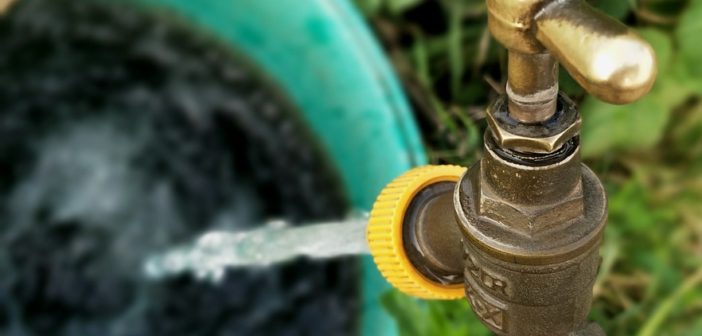Any water leak in your home can be a serious problem, whether the leak is minor or significant. Even minor leaks if left undiscovered for some time can cause property damage and a waste of water in the hundreds of gallons. Although not entirely from leaks, the EPA reports that on average a single household can waste almost ten thousand gallons of water annually.
If you have reason to suspect there might be a leak in your home, there are some general steps you should take as soon as possible in order to mitigate the damage and repair the source.
Step One: Assessment
It’s always best to take stock of the situation before doing anything else, including spending money on any services you’re not sure you need yet. It’s often possible to locate the source of the leak on your own. While you may not be equipped to repair such an issue, passing this information along to plumbing professionals will help them get to the root of the problem faster.
If you do manage to locate the faulty water source, you should go ahead and remove any surrounding items and materials from the area so that they are not damaged. For example, if you use your basement for storage and discover a leak there, take items of importance to another floor for protection. Even working quickly, it can be difficult to determine how long it will take to repair a leak, and it’s best to be on the safe side. Keep in mind that the source of the leak and its location can affect the steps you should take and how it is repaired; we simply used the basement as an example of this.
Step Two: Shut Off the Water
Once you’ve located the source, you’ll need to shut off the main supply. Shutting off the water prevents further waste and damage to the home structure or any items you may not have been able to remove from the affected area in time.
If you don’t already know where the main valve is in your home, we recommend learning its location as soon as you can. A leak in your home may not have happened yet, but many things that use water in the home or mechanical in nature. Nothing mechanical–such as a faucet–will last indefinitely. Always be as prepared as possible for a leak.
Keep in mind that there are shut-off points both inside and outside of your home. When we talk about shutting off a water valve, we’re talking about the one inside your home for purposes of this article. If shutting off the valves at your property line becomes necessary, a city worker is responsible for that.
The valve in your house could be in different locations depending on the infrastructure and how your home was built. Typically, it’s good practice to search inside the home on the side facing the street, and in the basement, if you have one. If you still can’t find the valve, check your home inspection report for details.
Step Three: Call the Professionals
It is possible that you’ll locate some minor leaks from a single source that are easy to repair. If you’ve noticed that there is a leak coming from your bathroom sink, perhaps it simply needs a new washer or some tightening in order to function correctly once more.
For purposes of our guide, however, we are talking about more serious leaks that are coming from a pipe that cannot simply be repaired quickly with DIY measures.
Hiring a plumber might cost a bit of money, but it will most likely save a lot more money in the long run. A professional will be equipped to handle even the most serious leaks using the right tools and know-how. And if you managed to locate the source of the leak as outlined above, your plumber will be able to get to work fixing the issue immediately. Utilizing a plumber will save on costs associated with structural or cosmetic damage. The good news is that, although there is no uniformity, most insurance policies will cover most types of leaks.
You may want to consider a 24-hour plumbing specialist, depending on what time of day you’ve discovered the leak. Several plumbing companies offer emergency service packages for this sort of thing.
Regardless, we recommend contacting repair services immediately (after you’ve taken the previous steps) even if the leak doesn’t look like it’s that serious.




